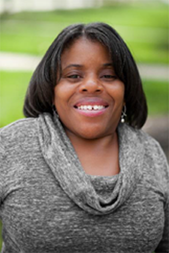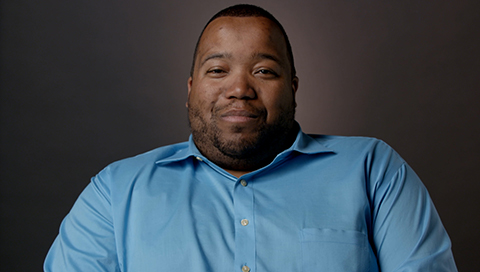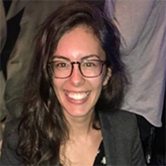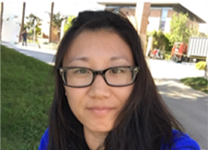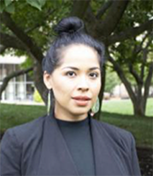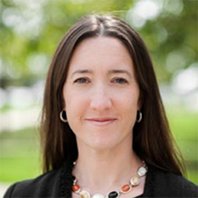About This Course
This To Be Welcoming course develops knowledge and critical thinking skills surrounding issues of bias, disability, and equity. In this course we model notions of justice, consider how ableism affects society, and build from personal experiences. We begin with key terms like "disability" or "ableism," followed by a video module featuring faculty experts answering commonly asked questions. Next, we build on our key ideas to see how disability is presented in popular media, inclusion, and accommodations. We conclude with points for starting your own discussions on Disability bias and considering appropriate responses.
Learners who complete this course will earn a digital certificate of completion.
Meet Your Instructors
Dr. Seena M. Skelton
Director of Operations
Indiana University-Purdue University
Arizona State University
Dr. Skelton is Director of Operations of the Midwest and Plains Equity Assistance Center where she plans and manages projects and services offered to public state and local education agencies throughout the Center’s thirteen-state region. Dr. Skelton has worked as an educational consultant for a regional special education resource center in southwest Ohio, a lead consultant for three state-wide school improvement initiatives funded by the Ohio Department of Education, and held co-director positions at the Equity Alliance at Arizona State University and the Great Lakes Equity Center at Indiana University-Purdue University Indianapolis. She has garnered more than 20 years of experience working in the areas of systems change, school improvement, and educational equity. Dr. Skelton has been an adjunct professor at Northern Kentucky University, the University of Cincinnati, the College of Mount Saint Joseph and IUPUI. She has co-authored book chapters on implementing systemic change for improved student outcomes, and regularly presents at numerous local, state, and national conferences on various topics related to promoting the success of historically marginalized students. Her latest scholarly work explores her identity as a Black woman with a disability, including her own educational experiences and how her identity shapes the professional learning work she engages in with public educators.
Carlyn Mueller
PhD Candidate
Special Education
University of Washington
Carlyn is a Ph.D. Candidate in Special Education at the University of Washington in Seattle, WA. Carlyn’s research focuses broadly on disability identity development. Based on her experience as a person with physical and learning disabilities, her research privileges students’ perspectives on special education and works to disrupt deficit notions of disability in school and schooling. Carlyn completed her B.A. in Special Education at Goucher College in Baltimore, MD and a M.Ed in Learning, Diversity and Urban Studies at Vanderbilt University in Nashville, TN. At the University of Washington, she has developed several disability-related undergraduate classes for future educators and has taught them online and in person. She has presented at both national and international conferences, such as the American Educational Research Association annual conference and the Second City Disability Studies in Education Conference, and is developing resources and mentorship opportunities for graduate students with disabilities in academia. Her work is published in Rehabilitation Psychology, the International Journal of Qualitative Studies in Education and the Journal of Postsecondary Education and Disability.
Dr. Holly Pearson
Visiting Assistant Professor
Sociology
Farmingham State University
Dr. Holly Pearson is a visiting Assistant Professor of Sociology at Framingham State University. She received her PhD in Education with an emphasis in Disability Studies from Chapman University, a M.S. in sociology from Iowa State University, and B.A. in sociology with a minor in Asian Studies from University of Alaska Fairbanks. Stemming from her background and identities as an Alaskan deaf Korean adoptee female who grew up signing American Sign Language and spoken English, her research focuses on the diversity and disability disconnect. She draws upon critical spatial studies, disability studies, intersectionality, and arts and visual methodologies in order to (re)examine social issues around institutional diversity and disability in higher education from a socio-spatial justice lens. Presently, she is exploring the history of higher education, particularly in the dynamic between higher education architecture and diversity. She is also examining disability disclosure, hidden labor, and hidden curriculum among scholars with disabilities. She has presented and published research on impact of disability studies curriculum, disability and diversity, disability and spaces, intersectionality, and arts-based and visual methodologies in multiple journals and national conferences. She also actively serves on the board and as secretary for Society of Disability Studies and secretary/treasurer for the American Educational Research Association’s Disability Studies in Education SIG.
Dr. Zelideh R. Martinez Hoy
Postdoctoral Fellow
Great Lakes Equity Center
Dr. Zelideh R. Martinez Hoy’s work in addressing health and education disparities is informed by her lived experience as a child interpreter, immigrant, and first-generation high school and college student. She has over 14 years of experience working in higher education as a non-profit education specialist, student affairs professional, and professor. She identifies as a Latina, non-disabled woman and her areas of practice and teaching include examining health disparities, cultural competency, U.S. Latinx family mental health (focusing on acculturation), and the impact of compassion fatigue in helping professionals. Dr. Martinez Hoy has a Ph.D. in Health Behavior from Indiana University School of Public Health, a Master’s degree in Higher Education and Student Affairs, and a Bachelor’s Degree in Public Affairs from Indiana University Bloomington. Her dissertation examined the experiences of compassion fatigue among higher education professionals working with undocumented students. Dr. Martinez Hoy focuses her work on the impact of emotional labor and vicarious trauma experienced by helping professionals working with historically marginalized populations and individuals exposed to trauma. She utilizes theories, such as Critical Race and Resiliency, and applies them to the Compassion Fatigue framework to explore how identity and lived experiences of service providers protect or predispose them to experiences of compassion fatigue and burnout.
Dr. Kathleen King Thorius
Executive Director, Associate Professor
Great Lakes Equity Center
Indiana University-Purdue University; Great Lakes Equity Center; Midwest and Plains Equity Assistance Center
Dr. Kathleen King Thorius is Associate Professor of Special Education and Urban Education Studies and Executive Director of the Great Lakes Equity Center and its Midwest and Plains Equity Assistance Center. Dr. Thorius is an internationally recognized expert in culturally responsive and sustaining education, special and inclusive education, equity considerations in multi-tiered systems of support, and race and disability equity-oriented professional development. Published extensively in practitioner and research outlets, including Harvard Educational Review, and the International Journal of Inclusive Education, Dr. Thorius was a school psychologist before earning her Ph.D. as a USDOE-funded doctoral fellow in an interdisciplinary program to prepare culturally responsive special education professors. During this time, she was professional learning coordinator for the National Center for Culturally Responsive Education Systems and the National Center for Urban School Improvement—and co-directed the Equity Alliance at Arizona State University. Dr. Thorius presents nationally and internationally on race, language, and dis/ability equity, and multi-tiered systems of support including culturally responsive school-wide discipline approaches. Her expertise undergirds past and current work with myriad US urban, rural, and suburban school districts and state departments of education.
